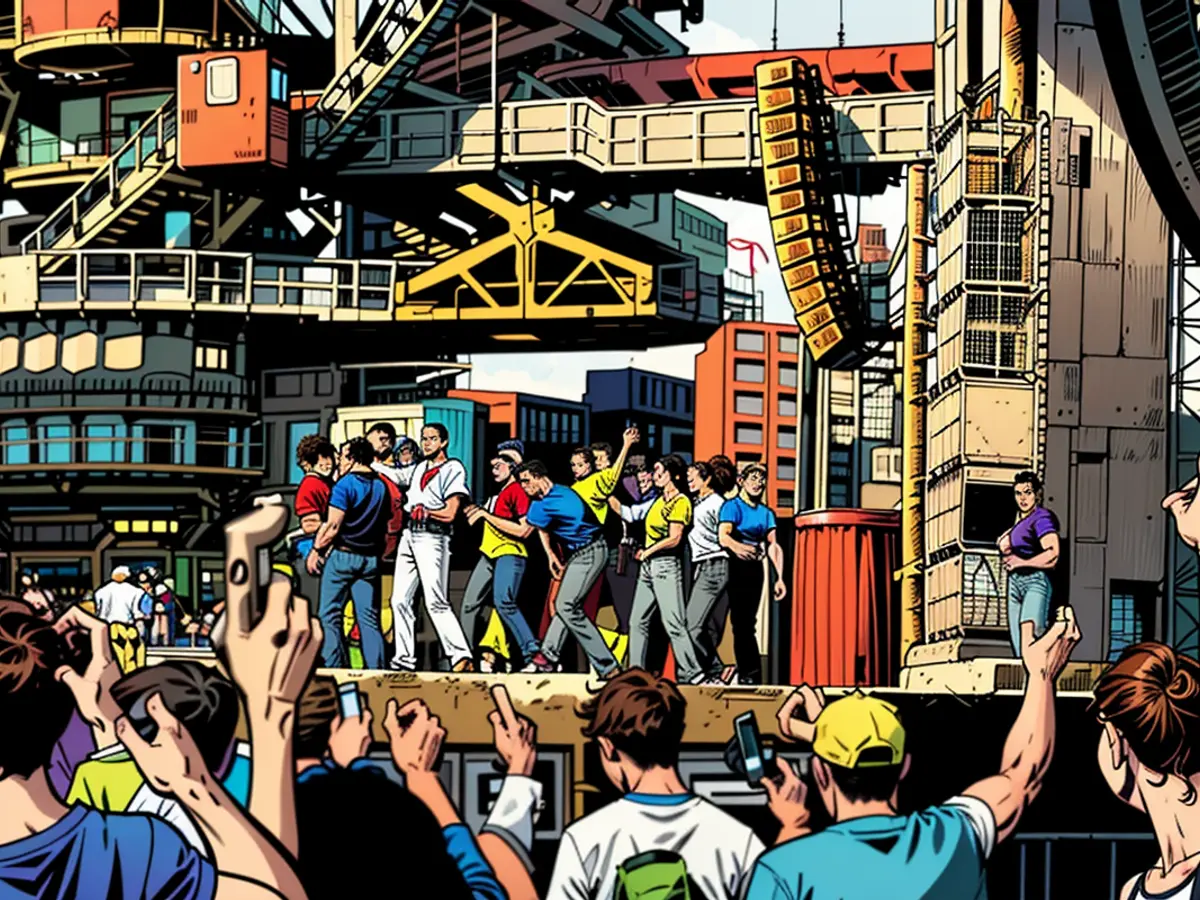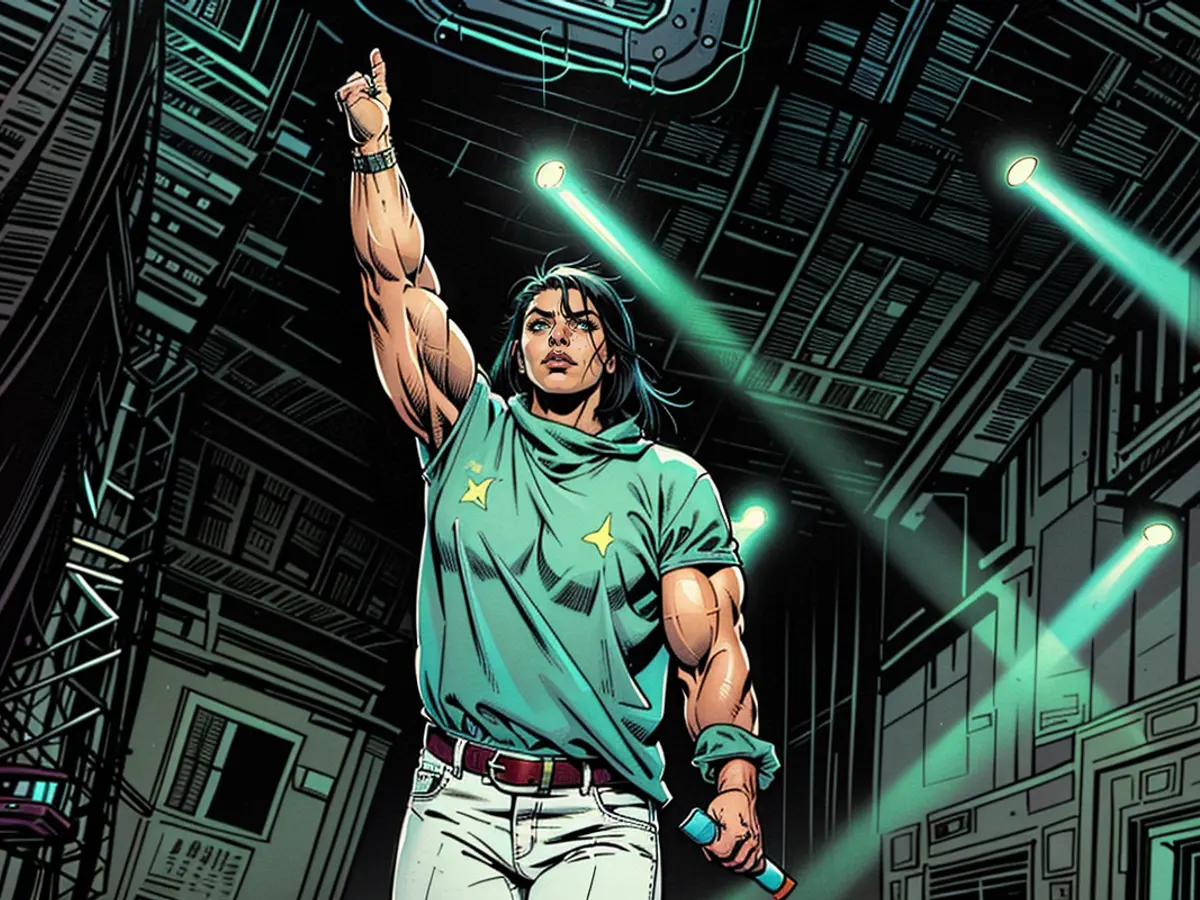Splash Festival - If you want to understand hip hop, you should watch this documentary
On a gloomy summer day, singer Paula Hartmann on stage utters this sentence that encapsulates the conflict of the entire festival. "I know, um, yes, I'm not completely Hip Hop...", she lowers her gaze, "...and I understand that it bothers some that I'm here." The crowd roars. Hands shoot up to the sky. Subtext: But you belong here!
The Splash Festival has existed for 26 years
The scene is from the new documentary "Bigger than Hip Hop", which has recently been released in the ARD Mediathek. The focus is on the Splash, one of the largest rap festivals in Europe, which takes place every year in Sachsen-Anhalt, Germany. In two episodes, the docu-series recounts the development of the festival: the beginning, rise, near bankruptcy, comeback – and European success. A musical hero's journey. And a fascinating deep dive into German Hip Hop history. For it's about more than just a festival; it's about questions of belonging, about art and artifice. And of course, about really good music.
In 1998, it went that far for the first time. When artists still didn't promote their music in TikTok clips and streaming numbers didn't dominate the market. In Germany, Hip Hop culture was not yet a mass phenomenon but a niche. Ignored by major media, unpopular with major labels. Thick record contracts were only for artists from other music genres. Hip Hop was a creatively hungry, but still small youth culture. Or as rapper Afrob says in the docu: "If someone drove by the car with Hip-Hop playing in it back then, and you were passing by, you would have greeted each other."
Fans flock to Chemnitz
In this year of 1998, the first Splash Festival takes place. Two Hip Hop fans had joined forces, "with a lot of naivety and no business plan," as it says in the film. Celebrated with approximately 1300 people in Chemnitz, the eastern German Hip Hop stronghold. The following year, they fulfill their dream of an open-air festival at a picturesque location: at the dam, surrounded by apple-green meadows and forests. With great success. In the year 2000, nearly 20,000 visitors stream to the concerts. But the louder the crowd, the louder the criticism: Has it all become too big? Too commercial?
Is that still Hip Hop?
This question has been around as long as Hip Hop itself. It's always been about whether the movement is empty and commercialized, whether the scene is sold out. The strength of the docu lies in explicitly addressing these big questions. Rappers like Samy Deluxe or Trettmann speak out, as do wise and important voices from the industry, like Marina Buzunashvili. When you listen to these people, a clear picture emerges. The Splash is for them much more than just a festival: a place where artists, fans, and creatives come together, test genre boundaries, and renegotiate values time and time again. Of course, it's also just about partying. About the latest styles. But zoom out, and you'll see more: a scene in introspection, over decades, with the same question: Is that still Hip Hop?
The doc tells of developments over several generations, in terms of sound, live performances, and the music industry. And it changes a lot, particularly between 2000 and 2011. The festival moves locations several times. Berlin street rap makes its mark on the scene. The music market is in crisis, with too many illegal pirated copies and too few CD sales. More and more US rap stars perform, such as Busta Rhymes, Jay-Z, or Snoop Dogg. Artists no longer play completely live, but increasingly use playback. Here comes the next conflict: How much art is there – and how much artifice is allowed? This is a question that is still being debated.
More and more rappers at Splash
The most beautiful development, however, is that German hip hop is becoming more and more feminine. The doc pays tribute to the arrival of so many excellent artists: SXTN, Shirin David, Liz, badmómzjay. And of course Paula Hartmann. "Rap has been pushed in all directions," says artist Casper at one point. That's true. More women, more audience, more influences from other music genres.
For hip hop fans, the documentary feels like a nostalgia-tinged time travel back to their own childhood. For newcomers to rap, it's an inspiring history lesson about the development of German hip hop: from a niche youth culture to a mass phenomenon.
- The documentary "Bigger than Hip Hop" in ARD's Media Library focuses on Paula Hartmann's performance at the Splash Festival, one of Europe's largest rap festivals in Saxony-Anhalt, Germany, showcasing her journey as an artist and the festival's evolution from a niche culture to a mass phenomenon.
- In 2000, the Splash Festival's attendance skyrocketed to almost 20,000 visitors, leading to questions about commercialization and loss of authenticity, with debates among rappers like Samy Deluxe, Trettmann, and industry figures, such as Marina Buzunashvili, regarding the festival's role and impact on Hip Hop culture.
- The documentary highlights Paula Hartmann's performance at the 2021 Splash Festival, where she discussed her identity as an artist outside the traditional Hip Hop genre, receiving a warm welcome from the audience and sparking a conversation about the festival's inclusivity and the boundaries of the Hip Hop movement.
- As a part of its promotional efforts, the Splash Festival collaborates with social media influencers, including TikTok creators, to expand its reach and connect with a younger generation of music lovers, showcasing its commitment to adapting and evolving with the times while staying true to its Hip Hop roots.









